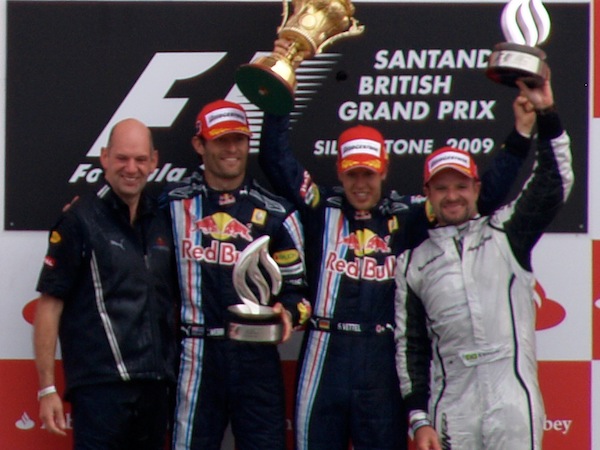As part of La Trobe University’s The Emerging Journalist program, the upstart team will scour all 200-plus student blogs, picking out one piece to publish each week. We’ve decided to spotlight Daniel Bramley’s, Life through a Sporting Lens, and his article examining the prevalence of greed in sport. It’s published below, and be sure to check out Daniel’s blog for all his work.
“Greed, for lack of a better word, is good. Greed is right. Greed works. Greed clarifies, cuts through, and captures the essence of the evolutionary spirit. Greed, in all of its forms; greed for life, for money, for love, for knowledge, has marked the upward surge of mankind.”
No, it’s not the mission statement of the latest oil baron to purchase an English Premier League club, but rather the famous quote from Michael Douglas’ charismatic character Gordon Gecko, in Oliver Stone’s 1987 film about corporate greed, Wall Street.
Greed is an underlying, yet often overlooked source of conflict in the sporting world, which repeatedly destroys the fabric of competitions, teams and individuals.
In recent times these conflicts have seen sports news transpose from the back pages of news publications to headlining news bulletins all over the world. Which begs the question, why? Why do sporting conflicts take such precedence in our daily news and why are they seen as newsworthy? How does greed infiltrate its way into the sporting arena alongside the values of sportsmanship and fair play?
The corporatisation of sport has seen an entire industry built which provides financial benefits to players, coaches, officials, administrators, sponsors, and media organisations, that past generations could never have imagined.
Sporting competitions all over the world are dealing with the consequences of expansion, and the subsequent increased revenues that flow as a result of wider media exposure. Adulation, fame, glory; being first, becoming the best, being the champion. The desire to be cutting edge and win at all costs is central to the pervasiveness of greed in sport.
The alleged peptide scandal involving the Essendon Football Club looks set to explode for the second time, since the release of the Australian Crime Commission report earlier this year. It remains to be seen whether Essendon’s administration were complicit in the alleged activities or if they were simply victims of a rogue sports scientist. Whatever the means were, the desired end result was a competitive on-field advantage, obtained through secretive methods in order to increase performance.
AFL CEO Andrew Demetriou’s season launch speech called on a scaling back of the pursuit of excellence at all costs. According to Demetriou, the game is in danger of “losing its innocence”. Yet Demetriou doesn’t seem to be concerned about the increased exposure of gambling odds to children, who are a universal symbol of innocence.
Children attending AFL matches are now bombarded with gambling advertising at every interval, with voices of concern raised by Opposition Leader Tony Abbott, and retired AFL player and media commentator David Schwarz.
So there’s a dichotomy at play here. Greed is driving unprecedented levels of revenue, while simultaneously threatening the integrity and innocence of sport.
Individuals within teams are not immune to the damage inflicted by greed.
The spat between Red Bull Racing team members Sebastian Vettel and Mark Webber was a classical representation of greed’s destructive nature in sport. Vettel overtook Webber in the closing stages of the recently held Malayasian Grand Prix, after both drivers were instructed to stay in their respective positions to complete the race.
Vettel, on his own accord, violated team instructions and overtook Webber to take out victory in the race. But why would Vettel do such a thing? He’s contracted to Red Bull Racing on a deal worth a reported $15 million (USD) per year, so why would he simply defy team orders?
Former formula one driver Jacques Villeneuve best described the situation: “It’s easy to make excuses, but in the end it’s easy, Vettel’s got the win and the points. Mark has nothing. It was a deliberate decision by Vettel.”
What has never been a harmonious relationship is now completely destroyed. The likelihood of both parties seeking reconciliation is next to nothing. Vettel recently admitted that he’s not sorry, and that he was only fulfilling his job description of being a ‘racing’ car driver.
While it could be argued that individual sports such as tennis and golf facilitate greed by their nature, both encompass team aspects in the respective forms of the Davis and Ryder Cup.
Competitions, clubs and individuals are willing to do whatever it takes to get that one percent competitive advantage on their rivals.
When it’s all said and done; greed or the insatiable desire for more, is a threat that needs to be assessed and managed in the uncertain environment with which sport resides. In South Africa, the greed of administrators is sadly destroying the developmental prospects of a variety of sports.
Greed is bad. It is wrong. It doesn’t work. It cuts through the competitive spirit and inherent values of sport, which is at the heart of the matter.
Daniel Bramley is a first year Bachelor of Journalism (Sport) student at La Trobe University, Melbourne. You can follow him on Twitter: @bramley_d
Photo: Wikimedia Commons
Keep up with all our Emerging Journalist chatter, by using #TEJ2013.







